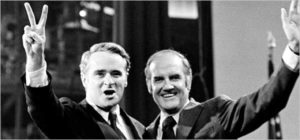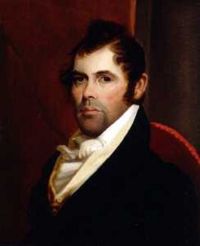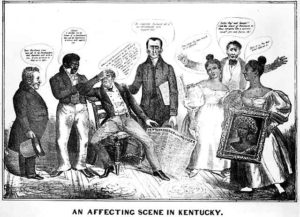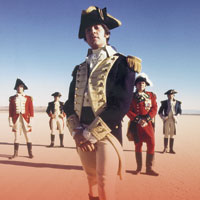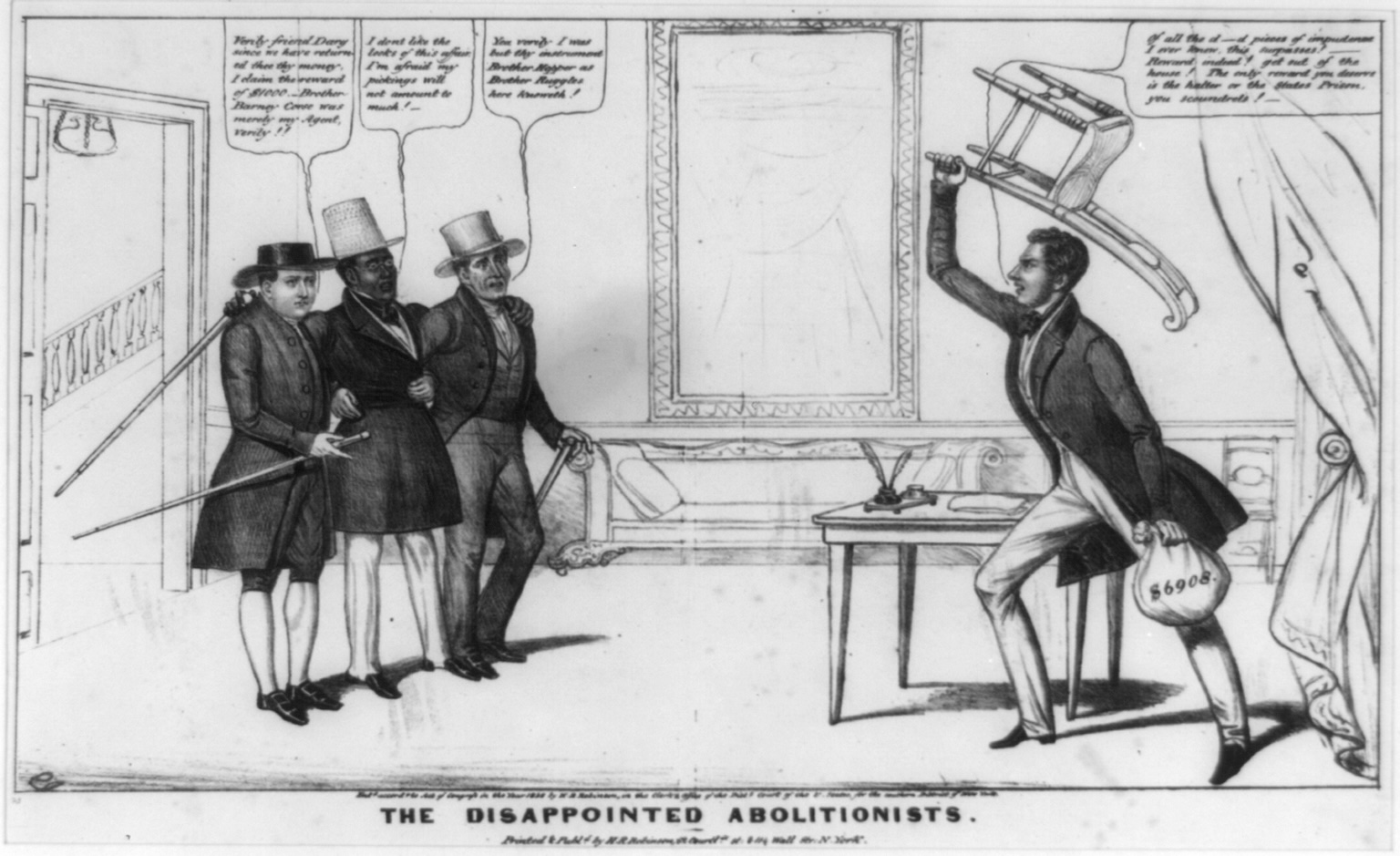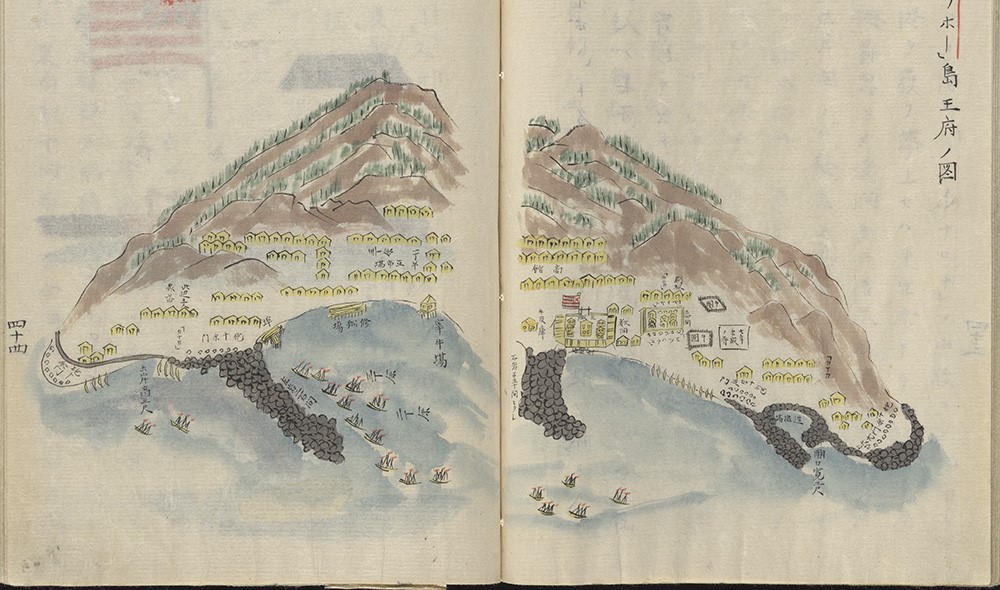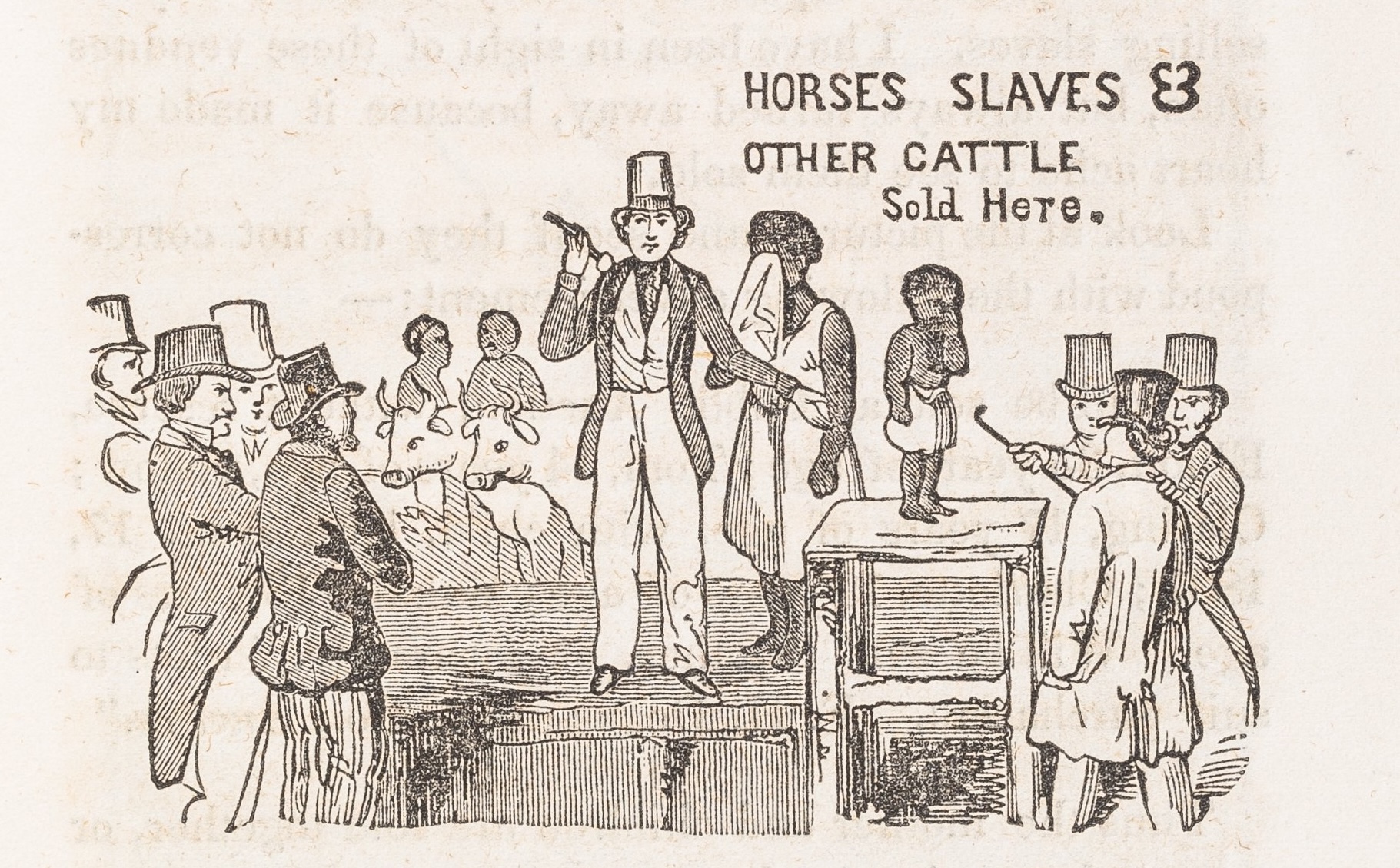August 29, 2008
Vice Grip
. . . on the media’s imagination, blogosphere included.
Finally, we come to the sense-shattering climax of Veepstakes 2008. It does give the TV & blog people something to talk about, at least until the hurricanes hit. I don’t mean to be a killjoy. I have long been a fan of Joe Biden, despite his serial hopeless presidential candidacies, and choosing him was a nice, low-key way to address Obama’s East Coast Catholic and foreign policy flanks. And with this Sarah Palin pick, we finally have our 49th & 50th states represented on a national ticket (if we count Obama for Hawaii). Of course, I have not looked to check that North Dakota, Idaho, Rhode Island, and such have been covered, but we now can rest assured that Delaware and Alaska are in the bag.
Yet I would lose my political historian’s license if I did not emphasize just how little vice-presidential picks matter, electorally speaking. Voters vote for president, the top, nation-embodying office, and always have, even back in 1796 when only local electors were actually running.
Now, the fact that the Veep might have to assume the main office, we should take seriously. [Something McCain, apparently, does not take seriously.] The Whigs wished they could have had a do-over on that John Tyler pick, and the Radical Republicans nearly succeeded in doing Andrew Johnson over. Yet electorally, and barring presidential death, it has almost never been a big thing. Lyndon Johnson and John Nance Garner brought some Texas-style political muscle to their respective tickets, yeee-haawww, but Texas was still a Democratic state back then.
The example that seems to hang over the veep-stakes in recent times has been Missouri’s own Tom Eagleton from 1972. While the Democrats’ craven handling of that episode certainly did not help McGovern in November, the idea that a 49-state, 23-point pulping like 1972 could truly hinge on a momentary running mate snafu is the kind of thing that only a pundit could actually believe. Let’s just say there were some larger forces at work.
In most other presidential elections, even objectively disastrous picks have just not mattered. Dan Quayle, anyone? Take Dukakis running mate Lloyd Bentsen’s celebrated pantsing of Dan Quayle in 1988.
It became “one of the most famous moments in US political history” (per the YouTube caption) and entered the permanent cultural lexicon, all the way to getting referenced in children’s Christmas specials. Yet it hardly saved the Dukakis-Bentsen ticket, or even made any difference at all as far as I can tell. Perhaps a non-Quayle would have helped Bush père a bit more in 1992, but I am really just saying that to be nice.
1992 may only be the second-best example of why running mates don’t matter very much. The best one is probably 1836. Martin Van Buren’s controversial veep pick was Richard Mentor Johnson of Kentucky, a national hero in some circles for allegedly killing Tecumseh and fighting to keep the post offices open on Sunday. Suffice it to say that Johnson turned out to have some serious negatives. In a country where only white men could vote, and where questioning racism in any way drew vilification and mob violence, Johnson was exposed as having lived openly with an African-American woman named Julia Chinn and the couple’s two mixed-race daughters, whom Johnson educated and married off to white men. The Whig press, really still just proto-Whig at this point, heavily publicized Johnson’s private life and clucked that such race-mixing was the inevitable result of Democratic slumming and demagoguery. The U.S. would be seen as a “national of mulattoes” if Van Buren and Johnson were elected, one newspaper warned. A racist political cartoon was published depicting the Johnson family at home. [For an excellent article on the incident, see Thomas Brown, “The Miscegenation of Richard Mentor Johnson As an Issue in the National Election Campaign of 1835-1836,” Civil War History 39 (1993): 5-30.]
Old Kinderhook’s problematic image down south was not improved by the controversy, but he won the election anyway, carrying Mississippi, Alabama, Arkansas, Virginia, and other states not known for their open-mindedness on racial matters. Looking at the map, Johnson’s unorthodox living arrangements may have hurt Van Buren as much with northern bluenoses, also usually racists, as it did with southerners. At any rate, Van Buren was hardly doomed even by such a catastrophic pick as Johnson.
Andrew Sullivan’s take on the Sarah Palin pick seems about right. Ruth Rosen’s too, in a less happy vein:
Sarah Palin is the inexperienced woman Sen. John McCain has chosen as his running mate, hoping that she will attract the vital female vote. It’s the worst kind of affirmative action, choosing a person he barely knows, who is completely unprepared to assume any national office. It’s like nominating Clarence Thomas for the Supreme Court.
You might even say it is the Republican version of affirmative action, where any member of the underrepresented group will do as along as they espouse GOP orthodoxy.
McCain’s “bold” move would also seem to be based on a fairly puerile piece of political analysis, as well: that disgruntled female Hillary supporters are so disgruntled they would now vote for any woman, even if she was only second place on the ticket and agreed with them on no issues. This seems based on typical old white guy assumptions about the narrow, shallow motivations of women and minorities seeking equality in votes and jobs.
August 28, 2008
He had me at Kansas
Obama’s speech was the only part of the convention my first-week-of-classes self could manage to watch live. It was not quite what I expected, but probably better. Democratic candidates since JFK and RFK have had a tendency to go for the soaring Ted Sorensen rhetoric that never seems to sound right coming out of non-Kennedy-accented, educated-after-the-1940s mouths. Unsurprisingly, most of these Kennedy wannabees did not pan out as national candidates. In a high-flown speech, Obama could never have matched the expectations for ultra-eloquence he has engendered, and he would have fed into the “show horse” meme pushed by the Clinton and McCain forces and the Baby Boomer-dominated media. Instead he came across as very direct and grounded, making the Rovian semi-smears and coded slurs of the past month seem as stupid and counter-productive as they were.
Once again, I found my response to Obama was very personal. His name may not be common in Kansas, but he does sound like a guy from there, and seems to represent the best aspects of the state where I grew up. Perhaps it will not come as a surprise that I tend to identify more with the Free State side of the Kansas tradition — the anti-slavery, pro-education, progressive side — rather than the anti-evolution, homophobic, paleo-Christian side that has been more on display in recent years. Then there’s the generational aspect: my Mom had an early 70s young mother dress just like the one Barack’s mom wears in one of the pictures in the biographical video that was shown; watching the moon landing as a small boy was one of my strong early memories, too; and one of his best lines against McCain was a crappy 70s TV reference. On a more serious level, we finally get a candidate whose outlook was not shaped by the whole coonskin cap to Woodstock to Weather Underground arc that we are all so very tired of hearing about.
I could live without the tax cut bidding war aspect of Obama’s economic plans, featured in the speech and heavily featured in the commercials that have been running during the Cardinals games lately. Yet, as typically New Democrat centrist as the speech was in some ways, it was, as Andrew Sullivan writes, “unashamedly liberal” in others. Obama actually spoke contemptuously of the idea that the market would solve all problems. He copped to the belief that corporations could not necessarily be trusted to work for the good of all without the government placing some limits on their behavior. And now that I think about it, that middle-class tax cut, combined with other proposals, sounds suspiciously like what they used to call a “transfer payment,” down the economic scale for once. Go transfer payments!
August 26, 2008
Conventionalities
This is the first week of classes here, so I hope this will cover up the fact that I really don’t care to watch the national party conventions. I loved them as a kid; it interrupted the reruns and even as late as 1980, unexpected stuff still occasionally happened at the conventions. Or it seemed to. It was kind of a “no Santa Claus” moment for this young politics fan to realize how empty of real decisions or actual information the conventions are. The media finally cottoned on to it, too, only to make matters worse by turning themselves into the political equivalent of Olympic judges — the floor exercises, I guess — minutely but mechanically critiquing the performance of each predetermined movement. (For the record, I gave up the Olympics around 1980, too.) Also, the Democratic Convention coverage suffers from an even worse case of Never-Ending-Sixties & Seventies-itis than John McCain’s foreign policy. Basically the media waits around for something that happened before to happen again: Mayor Daley, Abbie Hoffman, Tom Eagleton, Liberal Avenger Ted Kennedy, anything.
I will catch up with the online videos of some speeches later, but for now let’s recall an actually suspenseful Democratic Convention of 1844, with They Might Be Giants:
Thanks to the earlier commenter who reminded me of this song. It’s not a bad account except for the line about Martin Van Buren being an abolitionist, probably the most positive publicity the Used-Up Man has had in 150 years. The lyrics appear below for the use of other historical rock critics.
They Might Be Giants,
“James K. Polk”
In 1844, the Democrats were split
The three nominees for the presidential candidate
Were Martin Van Buren, a former president and an abolitionist
James Buchanan, a moderate
Lewis Cass, a general and expansionist
From Nashville came a dark horse riding up
He was James K. Polk, Napoleon of the Stump
Austere, severe, he held few people dear
His oratory filled his foes with fear
The factions soon agreed
“He’s just the man we need
To bring about victory
Fulfill our manifest destiny
And annex the land the Mexicans command”
And when the poll was cast, the winner was
Mister James K. Polk, Napoleon of the Stump
In four short years he met his every goal
He seized the whole southwest from Mexico
Made sure the tariffs fell
And made the English sell the Oregon territory
He built an independent treasury
Having done all this he sought no second term
But precious few have mourned the passing of
Mister James K. Polk, our eleventh president
Young Hickory, Napoleon of the Stump
August 22, 2008
The Regal Splendor of the Would-Be Presidential Palaces
TPM and other center-to-left blogs are having a wonderful time with the story that has spun out of John McCain’s inability to remember just how many houses he and his wife own. (Start here and read up from there.) It has become a humorous way to highlight both the Republican candidate’s age and just how super-wealthy he and his wife actually are, to a degree that will surprise many voters who only know McCain from his maverick-esque talk show appearances. The count appears to be up at least eight luxury homes, but many more if you count separate dwelling units, and many many more if you use the spaces that most middle-class American families live in as your units.
Miraculously, the mainstream media (AP and CNN and ABC) are joining the story some, showing just a touch of shame for the DC press corps’ slavering promotion of McCain over the years. We can also hope that even some of the TV-star media types who have lavish lifestyle issues themselves may want to show their common touch by expressing some shock at the McCains’ wealth or even feel a twinge of jealousy that even they, nightly guests in every American living room, are not quite this rich. (The New York Times, however, continues to search for false equivalences. To paraphrase Steely Dan, the things that pass for objectivity I can’t understand.) What Obama really needs is for the late night comedians to pick this up.
Here is Obama hitting the theme cautiously, but reasonably well:
On to historical context: There is, of course, a long tradition in American presidential politics of attacking an opponent’s lavish lifestyle, especially in times of economic hardship. It will be interesting to see how badly this hurts McCain. In the past, the tactic has been most successfully used against incumbent presidents, often by opponents who were wealthier or represented wealthier interests than the candidate who was being attacked. So the forces supporting rich planter, slave dealer, and land speculator Andrew Jackson raked John Quincy Adams over his billiard table.
The most successful example from the Early Republic was the well-funded 1840 Whig campaign defining tavern-keeper’s son Martin Van Buren as a pampered aristocrat, while the country suffered through the depression following the Panic of 1837. The key document was a massive speech-turned-pamphlet about the furnishings and operating expenses of the White House, published under the title “The Regal Splendor of the President’s Palace.” Here is a little explanation from Common-Place’s sturdy old precursor, American Heritage:
THE TIME MACHINE
1840 One Hundred and Fifty Sixty-Eight Years Ago
. . . On April 14 the Whig congressman Charles Ogle of Pennsylvania addressed the House of Representatives on the subject of Van Buren’s White House. The President had asked Congress for $4,675 to renovate the Executive Mansion, and Ogle greeted the request with a three-day tirade in which he mercilessly vilified Martin Van Buren. The packed galleries laughed and cheered as the congressman described a plumed and perfumed dandy “strutting by the hour before golden-framed mirrors, NINE FEET HIGH and FOUR FEET and a HALF WIDE,” in a “PALACE as splendid as that of the Caesars, and as richly adorned as the proudest Asiatic mansion.” Van Buren was too vain to eat “those old and unfashionable dishes, ‘hog and hominy,’ ‘fried meat and gravy,’ … [and] a mug of ‘hard cider,’ ” Ogle said. On the presidential table instead were gold utensils and “Fanny Kemble Green finger cups,” into which the President dipped his “pretty tapering soft, white lily fingers, after dining on fricandaus de veau and omlette souffle.”
The only response from the White House was a simple certification that “no gold knives or forks or spoons of any description have been purchased for the President’s house since Mr. Van Buren became the Chief Magistrate of the Nation.” Ogle published his “gold spoon oration” at his own expense, and copies that circulated throughout the country made him famous. Ogle had set the tone for the Whig campaign that was to propel Gen. William Henry Harrison, the “hard-cider man” and war hero, to an overwhelming victory in November.
The American Heritage site also has an excerpt from Ogle’s speech, in fact more of a mini-edition of it. I am getting together a pdf of the whole thing, or perhaps we can convince the AAS to do that. Compare Ogle’s lovingly detailed descriptions of “the magnificent decorations of the Presidential palace”and its grounds matching “the style and fashion of some of the most celebrated royal gardens In England” to TPM’s post “Lifestyles of the Rich and Mavericky,” which includes a realtor’s listing of the McCains’ quite regal Phoenix mansion describing its “Finest entertaining backyard in the Valley – 3 ramadas (2 w/full bar set-up), BBQ, play house, cantera stone decking, pavillion, spa, and large lap/play pool.” Another parallel is that Ogle got the information he did not make up from a proud description of the White House from the pro-Van Buren Washington Globe and an administration appropriations request. Among the sources for McCain’s detractors are a spread in Architectural Digest about one of his pads and adoring video tours of the others from Fox News and McCain’s own campaign website.
McCain’s attacks on Obama as a celebrity, including an ad that jibed “Life in the Spotlight Must Be Grand,” would be more typical of the inversionist faux-populism that has worked in past campaigns. But it’s now looking (tentatively) like it may have backfired. People who live in eight glass houses shouldn’t throw stones, I guess.
This appears to be my 100th post on this blog, so I’m glad it was accidentally a double-size special issue.
August 21, 2008
American Indian History Rocks [UPDATED]
This is in response to a post on the H-AMINDIAN discussion list, where I have lurked for many years because of a course I teach. I have only written to that list once or twice, but Paul Rosier of Villanova’s post was too deep in my wheelhouse to ignore. He wrote:
In a no doubt losing effort to stay current with my students, as well as to use a variety of sources in the classroom, I’m compiling a soundtrack for my Fall semester Native American history course. I welcome suggestions of songs written/performed by Native bands or songs in popular culture that can be analyzed in class. I play the songs to get the students going but also to illustrate how Native artists engage music as a medium. I’ll use a Johnny Cash song that deals with the Kinzua Dam crisis. I’d also use Buffy Sainte Marie’s song about Alcatraz to start a Red Power discussion. Widespread Panic has a song call Hatfield which talks about “Indians don’t like us much…” Robbie Robertson cut an album called Music for the Native Americans some time ago. Suggestions for bands/artists other than Indigenous or songs about American Indians?
Well, yes, I do have some. In fact as part of my obsessive thematic playlist-making, referenced here last week, I made myself exactly such a soundtrack several years ago. It was more for myself than to play in class, though every once in while I will burn a CD for a student who wants to do a term paper on “Native Americans in U.S. popular culture,” or some such topic. The current edition of the playlist appears below, with just a few notes for now. Readers should remember that though some of these numbers contain sharp satire or trenchant social commentary, this playlist is chiefly a study in white stereotypes and cultural tropes about American Indians, reflecting the ignorance and projections of the right and the left, East and West, then and now, the well-intentioned and the not so much. The management does not endorse many of the sentiments and images in these songs, but they do make a nice musical companion or extension to such works as Robert Berkhofer’s The White Man’s Indian (1979), Philip Deloria’s Playing Indian (1998), and Brian Dippie’s The Vanishing American: White Attitudes and U.S. Indian Policy (1982). We do not endorse the musical stylings of Cher either, though the song mentioned is inextricably linked with certain 1970s Midwestern childhoods that could be mentioned.
NORTH AMERICAN INDIANS IN U.S. ROCK, POP, AND COUNTRY MUSIC PLAYLIST
1. Waco Brothers – Geronimo (2:31)
2. Bob Wills – Cherokee Maiden (2:56) — introduces to this list the sexually-available “Indian maiden” theme and “tribal” drumming/chanting that recurs throughout this genre; the kids can dance to it!
3. BR5-49 – Cherokee Boogie (2:31)
4. The Dandy Warhols – Big Indian (3:34) – unclear what sort of Indian is referred to here, but I like the song
5. The Nazz – Christopher Columbus (3:23) – earlier, more awesome Todd Rundgren
6. Brad Jones – The Blunderbuss (3:13) – This song is only available on out-of-print & very hard-to-find CDs. I got it from the 1995 power pop compilation Yellow Pills, Volume 3. With apologies (and also compliments) to Mr. Jones, I have uploaded an mp3 of the song for the delectation and edification of that select set of people fascinated with those few occasions when indie pop-rock collides with American history.
7. Neil Young and Crazy Horse – Pocahontas (3:02)
8. Randy Newman – The Great Nations Of Europe (3:25)
9. Too Much Joy – Gramatan (5:28) – 90s alt-rock also-rans; we saw them give a crazed free show on the Esplanade in Boston back during grad school, when free was a crucial advantage for a band; check out the video below
10. 1910 Fruitgum Co. – Indian Giver (2:42) – a bubble-gum chestnut, to be sure, but a remarkably apt introduction this European stereotype derived (I think) from early misunderstandings of native ideas and practices concerning land ownership; listen while reading the chapter in William Cronon’s Changes in the Land
11. Squirrel Nut Zippers – Indian Giver (3:37) – ditto, but also a Christmas song: “Oh, Santa, don’t tell me you’re an Indian giver, too?”
12. Raiders – Indian Reservation (2:52) – blew my mind in the 1st grade carpool
13. The Dillards – Lonesome Indian (1:48)
14. Johnny Preston – Running Bear (2:38)
15. The Black Lips – Navajo (2:38) — this is almost brand-new, but identical in sentiment to Johnny Preston or Bob Wills from the 1950s; it does include a whole list of tribal names besides Cherokee, so that may be some kind of advance
16. Dean Martin – Not Enough Indians (3:28) — so offensive on so many levels
17. Cher – Half-Breed (2:44) – flashbacks to 5th grade trips to the roller rink
18. Buffalo Springfield – Broken Arrow (6:14) – more Neil Young
19. Sufjan Stevens – The Black Hawk War, or, How to Demolish an Entire Civilization and Still Feel Good About Yourself In the Morning, or, We Apologize for the Inconvenience But You’re Going to Have to Leave Now, or, “I Have Fought the Big Knives…” (2:14)
20. Treat Her Right – Trail of Tears (3:41)
21. Widespread Panic – Blue Indian (4:54)
22. John Anderson – Seminole Wind (3:57)
23. John Hiatt – Seven Little Indians (4:08)
24. Last of the Mohicans soundtrack (Trevor Jones) – Main Title (1:44)
25. Cotton Mather – Last Of The Mohicans (2:14)
26. Neil Young – Cortez The Killer (7:30)
27. Buddy Miller – With God on Our Side (9:12) — a Bob Dylan song, of course
The sequence is based on what sounds best to this listener. Lyrics can usually be found by Googling the artist and song title and “lyrics,” but you takes your chances choosing which of the many squirrelly lyrics sites out there to use. The song times are given because that’s how WinAmp generates playlists. Sources will be provided on request in the comments.
I will add more links later, but for now, here’s Too Much Joy with one of their few semi-serious numbers, “Gramatan”:
August 19, 2008
Cold War ghost pains flaring up
I would look a lot more prescient if I had written more extensively about this over the last few years, but I have the link to prove that “Cold War ghost pains” have long been my favorite theory about the inexplicable rise of the regime-changing, occupying-for-decades U.S. monomania toward Iraq. That is to say, it was largely a matter of Cold War institutions, Cold War personnel, and Cold War thought patterns suddenly losing their raison d’etre just as they were reaching peak productivity and influence. Through most of the 1980s, Cold War: The Next Generation — the cartoonish resurgence of aggressive anticommunism under Ronald “Evil Empire” Reagan — gathered strength. So-called neoconservatives controlled the foreign policy apparatus, dominated the public discourse, and a thousand proxy wars and weapon systems bloomed. Then, when the full-time anticommunists least expected it, no matter what they claim today, the whole thing ended almost overnight, with the fall of the Iron Curtain and the collapse of the Soviet Union. There was a whole political culture devoted to warning America about The Threat that no longer had anything to warn us about.
Sure, conservatives neo- and otherwise quickly forgot their recent dire predictions and celebrated “victory” in the Cold War as bombastically as they once told us we were losing. It was the “End of History” and all that. In their secret hearts, though, the neocons found the end of history kind of depressing; they and the politicians they advised wanted to be actors in history, and the only history they really understood, or thought they did, was the post-WWII kind, with some hazy homiletic extensions back to 1938. At any rate, all the piously malicious energy and well-worn tropes about standing firm and sending signals and twilight struggling and Leading the Free World cried for some outlet, and it didn’t take long to find one. I continue to be struck by this passage from a 2002 Frances Fitzgerald piece, where we find Dick Cheney having his epiphany about where the guns could be turned now, because after all we had already paid for them:
On one occasion during the campaign, Bush junior confessed that he really didn’t know who the enemy was. ‘When I was coming up, with what was a dangerous world,’ he said, ‘we knew exactly who the they were. It was us versus them, and it was clear who the them were. Today we’re not so sure who the they are, but we know they’re there.’ In a speech to the Council on Foreign Relations this February, Cheney admitted that before September 11 he had been similarly puzzled. ‘When America’s great enemy suddenly disappeared,’ he said, ‘many wondered what new direction our foreign policy would take. We spoke, as always, of long-term problems and regional crises throughout the world, but there was no single, immediate, global threat that any roomful of experts could agree upon.’ He added, ‘All of that changed five months ago. The threat is known and our role is clear now.’
What Cheney was saying, in a slightly more articulate fashion, was that the main purpose of American foreign policy was to confront an enemy—and that a worthy successor to the Soviet Union had finally emerged, in the form of international terrorism.
I bring this back up, because this past week we have found out where neocon passions really lie. As you should see at left or above, history is back, baby, along with such blasts from the past as missile launchers and other weapons systems being moved into countries neighboring Russian territory. It even seems that BushCo has been following a Cold War-ish policy of encouraging Georgia to conduct itself as an anti-Russian U.S. client that happened to be right on Russia’s borders, despite the fact we were not enemies with Russia anymore. Not-as-cuddly-as-the-U.S.-wants-him-to-seem Georgian president Mikheil Saakashvili clearly likes to play Fidel Castro to Russia’s U.S., the provocative neighborhood gadfly who thinks he is protected enough to get away with it. Our bad.
In fact, there are not all that many Cold War similarities in the actual situation the U.S. (and the Georgians) face in Georgia, but we should have guessed at how excited the neocons and their fellow travellers (McCain) would be if a chance to confront the old archvillain, or some semblance thereof, even hinted at presenting itself. Josh Marshall was quite funny the other day, writing about:
the bankrupt posturing of the neocons, jumping at the hopes of a new Cold War with the Russians, despite the lack of the ideological underpinnings on which we fought the first and any Russian global ambitions or capacity to fight it.
But I think in our own lives we all know the type who heads off into some new and exciting scheme, with high hopes and little forethought. And when things don’t pan out or come crashing down at their feet, rather than take stock of the situation or reevaluate their own shiftless practices, they’re off to some new ambitious plan or get-rich-quick scheme as if the last gambit had never happened.
And it’s hard not to recognize that sad figure in the Max Boots and John McCains and Bill Bennetts and all the rest with their sustaining roots planted firmly at AEI HQ. After all, what happened to the long twilight struggle against radical Islam? So yesterday, I guess.
There is an old-fashioned term for people like this, and that is “warmongers.” If we can ever get our heads out of the WWII nostalgia-space long enough to admit that wars can actually be bad even if U.S. soldiers fight in them, we should consider using that word again, and bring the moral opprobrium as well.
Recovering historian that he is, Josh complained trenchantly in another post of the “grandiosity” that afflicts D.C. denizens when they deal with foreign policy, and points to the way that such grandiosity is built into the culture of the modern media and policy-making system:
One of the great threats we face is the personal sense of grandiosity of the lead foreign hands who shape the course of our role in the world. Not national grandiosity, but personal grandiosity. Because if you’re a foreign policy hand or political leader your own quest for greatness is constrained by whether or not you live in times of grand historical events.
There’s a lot of this nonsense floating around today by pampered commentators who want to find a new world historical conflict to write bracing commentary about before we’re done with the one from last week.
Amen. I think the media effect here is huge, but probably even broader. Endless repetition and stylization of the post-WWII historical narrative of world politics has boiled everything down to a few images and phrases and feelings that can easily sketched and reapplied to new situations. 24-hour cable news and the Internet provide an insatiable market for instant “historic” moments that no one will be able to escape for the next two days or remember in six months’ time. Technology and lots of practice make it almost absurdly easy to provide such historic moments, at least in terms of generating “compelling” footage of some would-be statesman saying appropriately steely things. In effect, they all want to be the star of their own cable “history” documentary, and they probably will be.
August 14, 2008
Russia as Great Power Redux [UPDATED]
Here is some support for my friend the Trotskyist’s Great Power thesis (regarding recent Russian behavior — see previous post), from the Los Angeles Times:
For years, Moscow could do little but fume as NATO courted and enrolled Russia’s former Soviet allies as members. But now, with its economy resurgent because of high oil and gas prices, and NATO and the United States preoccupied with Iraq and Afghanistan, Russia’s relative power in the region has grown.
“For 3 1/2 centuries, Russia has dominated its neighborhood,” said Angela Stent, director of the Center for Eurasian, Russian and East European Studies at Georgetown University. Russia is “throwing a gantlet down, saying that there isn’t going to be any more NATO enlargement.”
So far, the North Atlantic Treaty Organization has granted membership to the three former Soviet Baltic republics: Estonia, Latvia, and Lithuania. Former Warsaw bloc countries from Poland in the north to Bulgaria in the south also have become members.
Georgia and Ukraine had been hoping to gain candidate status at a NATO meeting in December. But recent events in Georgia may make NATO members and even the two countries themselves think twice.
“The Russian argument is: ‘We are a great power. This is our sphere of influence. Just because the Soviet Union collapsed does not mean that NATO can expand on our border,’ ” Stent said.
The thing is, Putin may be a thug, but he is probably much less so than a lot of “pro-Western” leaders the U.S. has propped up in the past, especially in Latin America. Furthermore, the U.S. has been taking the proprietary attitude Russia has toward the Caucasus these days over a much wider area, since the time John Quincy Adams and Andrew Jackson were spearheading (or gunpointing) foreign policy for President Monroe — at least that long — and often taking more extreme actions. The entire western hemisphere has been our “sphere of influence,” and the U.S. government has shown few compunctions about overthrowing and undermining and sometime invading countries, in our neighborhood and out of it, where a government does something we don’t like. No need to even mention Iraq, or the multiple attempts to “liberate” Canada: Spanish Florida, Nicaragua, Chile, Guatemala, Cuba, Grenada, the list of successful and mostly unavenged U.S. interventions goes on. We also conquered Mexico, but gave most of it back, excepting the southwest 1/4 of our present land area, of course. Returning to now, what would we do if Putin tried to establish a military alliance with Mexico or the Dominican Republic? That’s the equivalent of what Georgia joining NATO would mean to Russians.
You know what’s funny? Looking up historical parallels, I was reminded of which Great Power tried to rescue the U.S. diplomatically during the War of 1812: Tsar Alexander I’s Russia. The Russians weren’t too happy about the Monroe Doctrine later, but as far I know they never tried to adopt a Latin American country as their protégé, either. [NOTE: I am referring to Tsarist Russia here, during the 19th century, not the Soviet Union in the 20th.]
August 11, 2008
Life Without Great Powers Not Seeming So Great in Georgia
On the way to a ballgame this weekend, listening to an NPR report on the recent Georgian conflict, my friend the Trotskyist commented that the world seemed to be returning to the pre-WWI Great Power system, with empires gobbling up territory at the expense of smaller, weaker states that needed to find a Great Power protector or become one themselves if they expected to survive. Or at least Russia was returning to that model.
I didn’t have a coherent response in the car, but one of today’s New York Times stories on the conflict makes it sound like the Georgians believed they were operating in a Great Power system. How else to explain why the Georgians thought this would be an opportune moment to deal with their own breakaway regions, which were under Russian protection, the kind involving real troops. The Georgians seem to have thought that Shrub’s cheerleading for their fledgling democracy meant they were under our protection in that old-fashioned sense of our being bound to protect them in case of invasion by another Great Power:
All along the road was grief. Old men pushed wheelbarrows loaded with bags or led cows by tethers. They drove tractors and rickety Ladas packed with suitcases and televisions.
As a column of soldiers passed through Gori, a black-robed priest came out of his church and made the sign of the cross again and again.
One soldier, his face a mask of exhaustion, cradled a Kalashnikov.
“We killed as many of them as we could,” he said. “But where are our friends?”
It was the question of the day. As Russian forces massed Sunday on two fronts, Georgians were heading south with whatever they could carry. When they met Western journalists, they all said the same thing: Where is the United States? When is NATO coming?
Since the conflict began, Western leaders have worked frantically to broker a cease-fire. But for Georgians — so boisterously pro-American that Tbilisi, the capital, has a George W. Bush Street — diplomacy fell far short of what they expected.
Of course, as Shrub’s friend Vlad Putin knows, the U.S. has spent the last five years in Iraq demonstrating just how limited our power is on that side of the world, and precluding any further major interventions anywhere, let alone battling Russia on its near-home turf. If this were the pre-WWI system, we might have declared war on Russia immediately and attacked one of her allies somewhere else or sent troops across the Bering Strait (just as in Risk) or used the Navy to cut off the Black Sea or sink Russian ships in the Pacific. Iran would be in big, big trouble. And World War However Many would have been ready to rumble. You have to feel for the Georgians; they are finding out the hardest way possible how little U.S. neo-imperialists can really be trusted.
August 8, 2008
Rocking the Colonial Period
In answer to Ben’s comment, of course Sir Lord Baltimore counts, and who could forget Paul Revere and the Raiders, who actually performed in quasi-colonial outfits? (Actually they are still performing in them, in Branson!) To my surprise, it seems that the gimmicky, studio-buffed Raiders have enjoyed something of a critical renaissance in recent years. Kicks do just keep getting harder to find.
But if we are going all colonial, what about Cotton Mather (out of Austin, Texas), perhaps the greatest power-pop band ever? I have no idea why Robert Harrison and company decided to name themselves after a witch-unfriendly Puritan divine, but their band was really, really good. They had a taste of success in the late 1990s but got washed away in the implosion of the “commercial alternative” music scene around the same time. I remember hearing their terrific single “My Before and After” on the radio a couple of times in Tallahassee, but I only truly discovered them ex post facto, thanks to a wandering conversation (and subsequent CD-burning) with a University of Chicago Press editor at an OAH booth a few years ago. I kid you not. (Sadly, Cotton Mather never named an album “Wonders of the Invisible World,” a ready-made album title if I ever saw one, at least if you had to choose among Puritan religious writings.) The video below is not my favorite of their songs, but it was the only one I could find on YouTube. Other songs can be heard here.
August 7, 2008
Early Republic-themed band names
Thomas Jefferson Slave Apartments, Andrew Jackson Jihad, and The Henry Clay People (for partisan balance): who knew that early American politicians were still such a hit with kids two centuries later? Though relatively recent news to me, it may or may not be a trend. TJSA was apparently an 80s band that I missed out on at the old college radio station. The other two are currently active and very, very young, judging from their web pages. Quick, someone book a double-bill for SHEAR next year. I am sure the profane, folk-punk stylings of the Jihad would go over really well at the banquet. Old Hickory must be very proud that bearded kids from Phoenix want to name themselves after him. Watch this space for more history-themed musical fun.
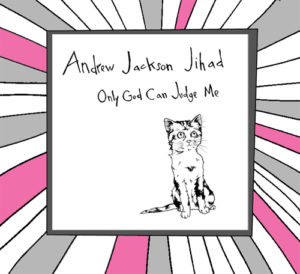 |
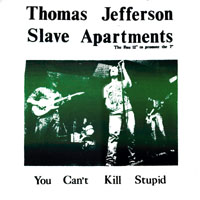 |
 |
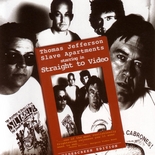 |
This article originally appeared in issue 9.1 (October, 2008).
Jeffrey L. Pasley is associate professor of history at the University of Missouri and the author of “The Tyranny of Printers”: Newspaper Politics in the Early American Republic (2001), along with numerous articles and book chapters, most recently the entry on Philip Freneau in Greil Marcus’s forthcoming New Literary History of America. He is currently completing a book on the presidential election of 1796 for the University Press of Kansas and also writes the blog Publick Occurrences 2.0 for some Website called Common-place.



